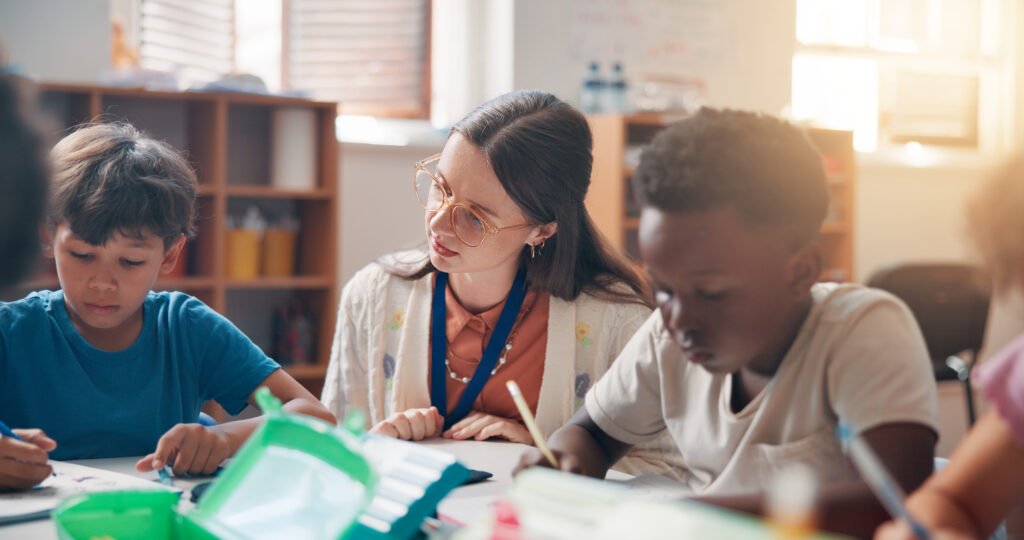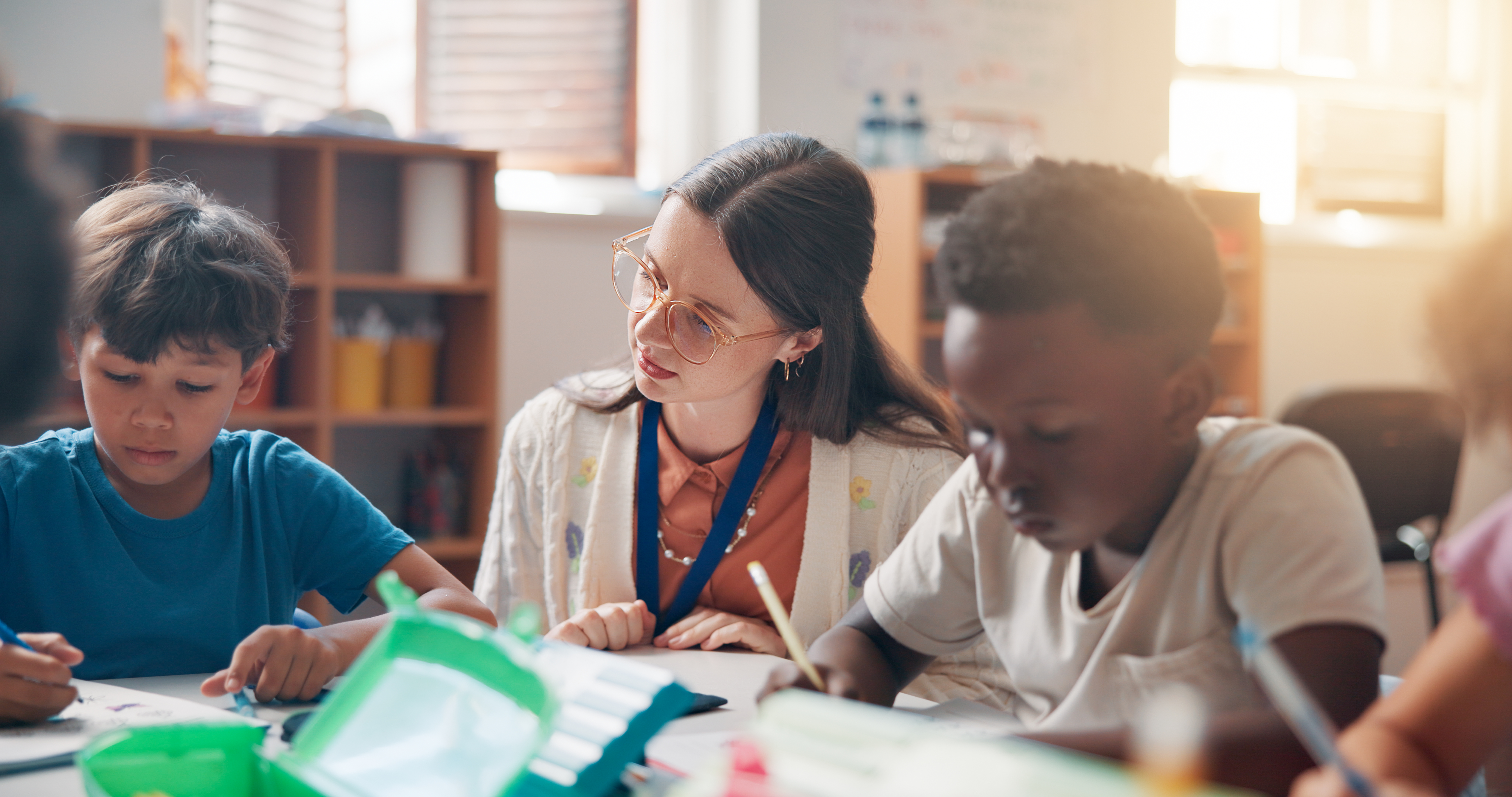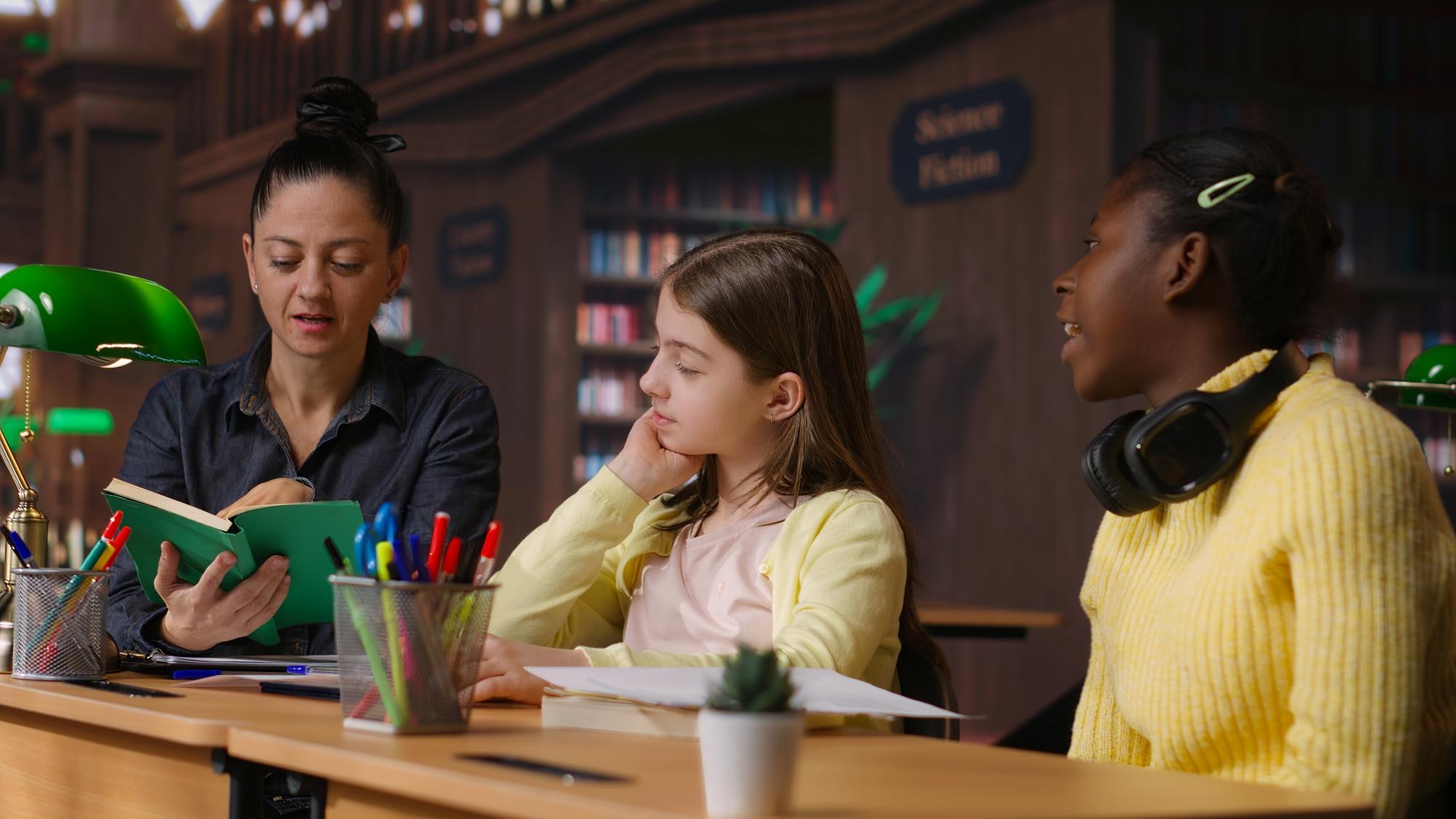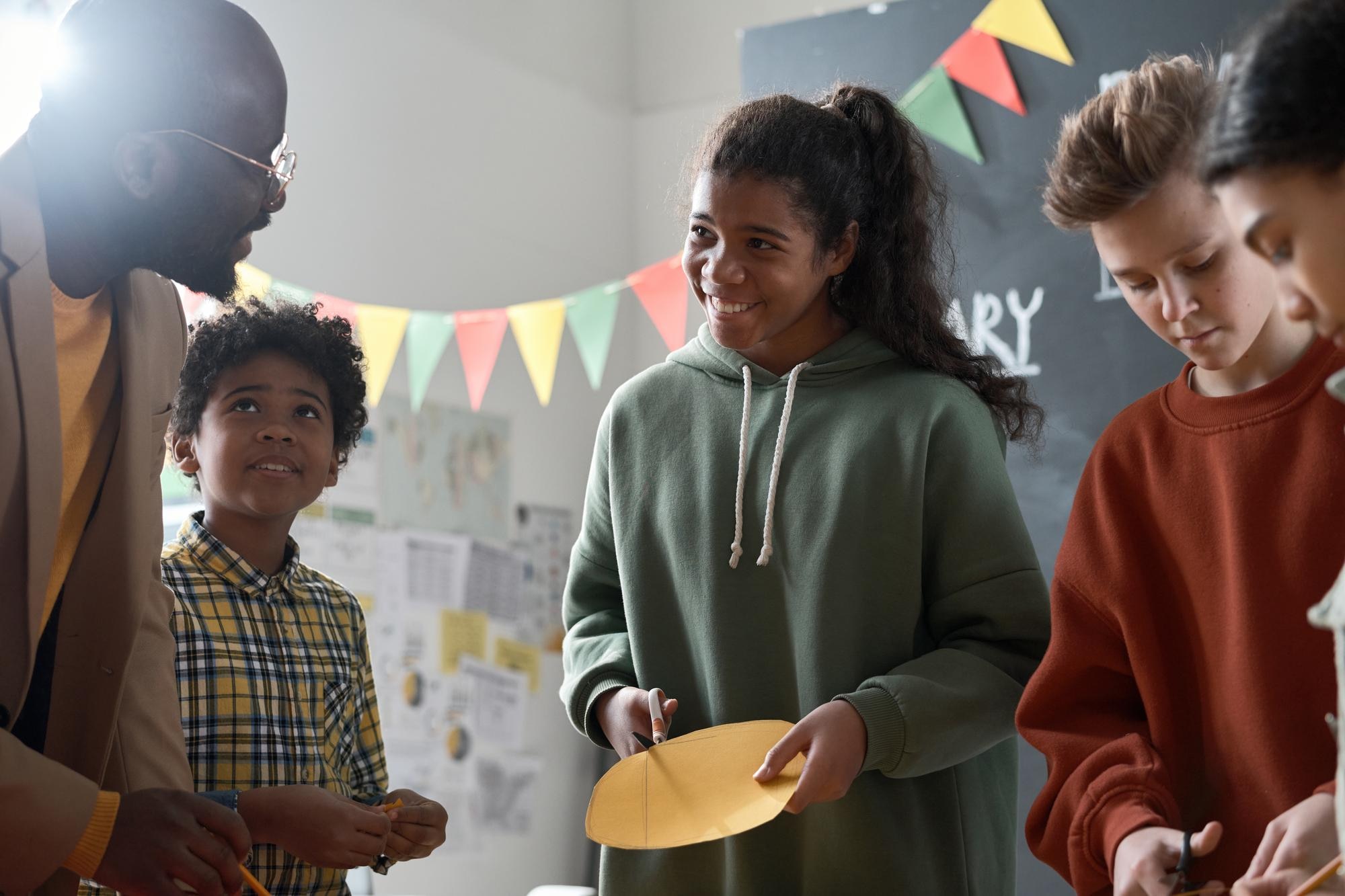
Writing, education and teacher helping kids in classroom for language development, learning or growth. Notebook, advice and woman educator with children students for lesson at elementary school.
Empowering Gifted Students: Top Strategies for Educators to Build Resilience and Confidence
Gifted students often face a unique set of emotional hurdles. You see it every day—the anxiety, the perfectionism, the feeling of being misunderstood. How can you, as an educator, help them rise above these challenges? This post will give you the tools you need. Discover practical educational strategies that build emotional resilience and boost confidence in gifted education. You’ll learn how to create a nurturing environment where these brilliant minds can truly thrive. Let’s turn potential into power together. For more insights, consider reading this article on building resilience in gifted students.
Understanding Gifted Students

Educators face unique challenges when teaching gifted students. Understanding their distinct needs is the first step towards effective teaching. This section explores the emotional challenges they face and the pivotal role educators play in gifted education.
Emotional Challenges Gifted Students Face
Gifted students often grapple with emotional challenges that set them apart from their peers. They frequently experience intense emotions and may struggle with anxiety or feelings of isolation. This heightened sensitivity can lead to perfectionism, where the fear of failure becomes debilitating.
Anxiety: Many gifted students feel pressure to excel, leading to anxiety. They might worry excessively about underperforming, which can hinder their academic progress.
Perfectionism: While striving for excellence can be beneficial, unhealthy perfectionism can cause stress. Students may avoid taking risks due to fear of not meeting high expectations.
Educators need to recognize these challenges and provide a supportive environment that acknowledges and addresses these emotional needs. According to Psychology Perspective, fostering resilience in gifted students involves validating their feelings and guiding them toward healthy coping mechanisms.
The Role of Educators in Gifted Education
Educators play a crucial role in fostering emotional resilience and confidence in gifted students. Their impact goes beyond academics, influencing students’ personal growth and emotional well-being.
Recognizing Individual Needs: Teachers must identify and understand each student’s unique emotional and academic needs. This personalized approach helps in creating an effective learning environment.
Creating a Safe Space: Educators should foster a classroom atmosphere where students feel safe to express themselves. This encourages open communication and emotional expression.
Providing Support: Continuous support and encouragement are vital. Educators should offer constructive feedback and celebrate achievements to build confidence.
The Genie Academy emphasizes the importance of educators in nurturing both the intellectual and emotional development of gifted students, ensuring they reach their full potential.
Building Emotional Resilience

Emotional resilience is essential for gifted students to navigate life’s challenges. This section provides strategies for overcoming anxiety and encouraging healthy perfectionism, both crucial for emotional growth.
Strategies for Overcoming Anxiety
Overcoming anxiety is critical for gifted students to thrive. Here are strategies that educators can employ:
Mindfulness Practices: Encourage daily mindfulness activities to help students focus and reduce anxiety. These practices promote calmness and concentration.
Cognitive Behavioral Techniques: Teach students how to challenge negative thoughts and replace them with positive affirmations. This cognitive restructuring can alleviate anxiety.
Peer Support Groups: Facilitate group discussions where students share experiences and coping strategies. This communal support fosters a sense of belonging and understanding.
According to NAGC, building resilience in gifted students involves teaching them skills to manage stress and anxiety effectively.
Encouraging Healthy Perfectionism
While perfectionism can drive success, it must be healthy to be beneficial. Educators can guide students toward a balanced approach:
Set Realistic Goals: Help students set achievable goals that challenge them without overwhelming them. This balance prevents burnout.
Emphasize Effort Over Outcome: Encourage students to value the learning process rather than just the end result. This shift in focus reduces pressure and enhances enjoyment.
Model Imperfection: Share your own mistakes and learning experiences. This normalizes error-making and reduces the fear of failure.
The Educational Service Center of Central Ohio highlights the importance of guiding students towards healthy perfectionism to promote long-term emotional resilience.
Confidence Building Techniques

Confidence is a cornerstone of personal growth and academic success. This section details how to create a supportive learning environment and offers practical strategies for confidence building.
Creating a Supportive Learning Environment
A supportive classroom environment is essential for confidence building in gifted students. Key elements include:
Positive Reinforcement: Regularly acknowledge and praise students’ efforts and achievements to boost self-esteem.
Inclusive Participation: Encourage all students to participate actively in classroom activities, ensuring every voice is heard and valued.
Safe Risk-Taking: Provide opportunities for students to take risks in a safe environment. This encourages exploration and growth without the fear of criticism.
Educators can learn more about fostering a nurturing classroom environment at Genie Academy.
Practical Educational Strategies for Confidence Building
Implementing practical strategies can significantly enhance confidence in gifted students:
Mentorship Programs: Pair students with mentors who provide guidance and encouragement, fostering growth and confidence.
Skill-Building Workshops: Offer workshops focusing on specific skills like public speaking or creative writing to build competence and self-assurance.
Student-Led Projects: Allow students to lead projects, giving them ownership of their learning process and enhancing self-belief.
The insights from Psychology Perspective emphasize the power of tailored educational strategies in developing confidence and resilience in gifted students.
By incorporating these strategies, educators can significantly impact their students’ emotional and academic development, providing a foundation for lifelong success. 🌟

A certified Heal Your Life® Coach with 20+ years in education and emotional development. Supports gifted teens in navigating anxiety, perfectionism, and identity challenges, while equipping parents with practical tools for lasting transformation. Sessions blend emotional healing, mindset mastery, and strategic empowerment.



